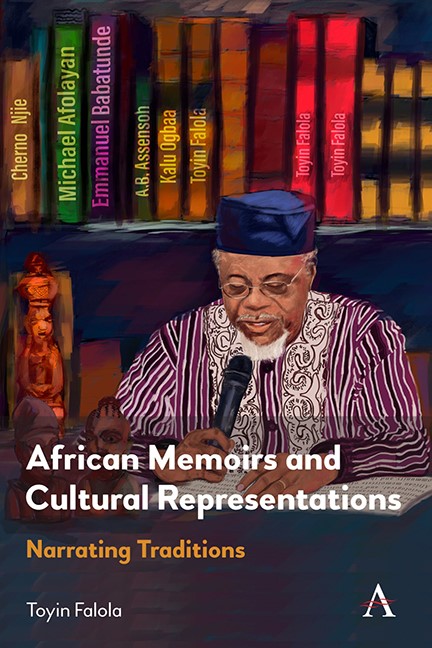Book contents
- Frontmatter
- Contents
- List of Figures
- Dedication
- Acknowledgments
- Preface
- Chapter One Mirror Effect: Narrating the Self through Traditions and Cultures
- Chapter Two The Universal and the Particular in African Memoirs
- Chapter Three The Portraiture of Womanhood in Emmanuel Babatunde’s An African Journey through Celibate Priesthood to Married Life
- Chapter Four Politics, Philosophical Representation, and Culture in Cherno Njie’s Sweat Is Invisible in the Rain
- Chapter Five The Yoruba Worldview, Meanings, and Ideals of Life in Michael Afolayan’s Fate of Our Mothers
- Chapter Six The Indelibility of Igbo Tradition (Home) in Kalu Ogbaa’s Carrying my Father’s Torch
- Chapter Seven Experiences, Reflections, and Refractions on the Cusp in A. B. Assensoh’s A Matter of Sharing
- Chapter Eight Toward a Spatial and Identity Synthesis: Regional Peculiarities in African Memoirs
- Bibliography
- Index
Chapter Two - The Universal and the Particular in African Memoirs
Published online by Cambridge University Press: 14 November 2023
- Frontmatter
- Contents
- List of Figures
- Dedication
- Acknowledgments
- Preface
- Chapter One Mirror Effect: Narrating the Self through Traditions and Cultures
- Chapter Two The Universal and the Particular in African Memoirs
- Chapter Three The Portraiture of Womanhood in Emmanuel Babatunde’s An African Journey through Celibate Priesthood to Married Life
- Chapter Four Politics, Philosophical Representation, and Culture in Cherno Njie’s Sweat Is Invisible in the Rain
- Chapter Five The Yoruba Worldview, Meanings, and Ideals of Life in Michael Afolayan’s Fate of Our Mothers
- Chapter Six The Indelibility of Igbo Tradition (Home) in Kalu Ogbaa’s Carrying my Father’s Torch
- Chapter Seven Experiences, Reflections, and Refractions on the Cusp in A. B. Assensoh’s A Matter of Sharing
- Chapter Eight Toward a Spatial and Identity Synthesis: Regional Peculiarities in African Memoirs
- Bibliography
- Index
Summary
Introduction
Varying day-to-day activities that humans experience at different times are important and pivotal to their existence, many of which are also valuable when shared with others. Advancing the course of society requires that people are intimated with the activities of individuals whose existence is especially rich with educative exploits from which others can learn. Therefore, storytelling by individuals or groups is essential because it foregrounds the experiences of the ones telling them and how their relationship with each story affects them and their society. The consequence is that people are enlightened about many of the steps they will eventually take, making it possible for them to predict the outcome of any decision to advance their individual or collective course. Although telling a story demands that the narrator has reliable memory that would not fail when regurgitating past experiences, this is usually cardinal to record-keeping because a story told without any regard for genuineness will lose its narratorial value. It is important that stories are told strictly by experts who understand the art of organizing historical events in ways that will appeal to the readers.
It is pertinent to state that the memoirs I engage with reveal a considerate attempt to explore autobiographical writing and theory regarding relational and autonomous lives in communal spaces. The memoirs discussed in this book demonstrate that the authors engage in an autonomous, singular, and unitary narration with themselves while simultaneously emphasizing their narratives as they interpenetrate and mutually cross with others to create a whole new dimension of experiences. The memoirs that will be investigated in this writing are authored by individuals who experienced the colonial power play and the eventual postcolonial realities that have continued to widely shape the lives of the African people.
Types of Stories
There are several types and forms of stories, having definitive qualities that separate them from the arrays of others. For example, there are biographies, autobiographies, fiction, and even memoirs, all of which have varying characteristics that differentiate them from others. In a memoir, there is a thin distinction that makes it different from an autobiography. While the latter is about the chronological experiences of the writer, the former dwells essentially on a part of the person’s history, giving enough information about that particular experience.
- Type
- Chapter
- Information
- African Memoirs and Cultural RepresentationsNarrating Traditions, pp. 25 - 52Publisher: Anthem PressPrint publication year: 2023

